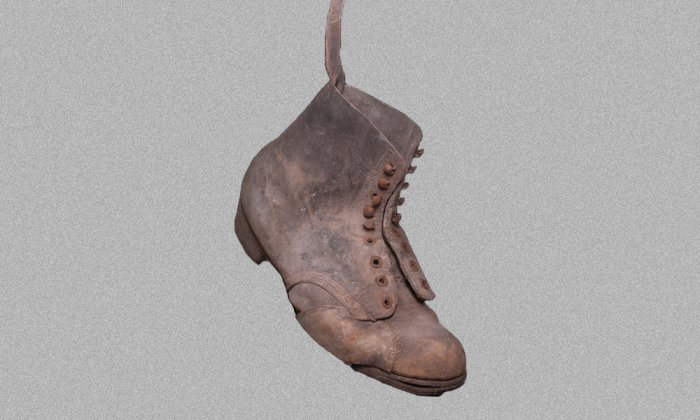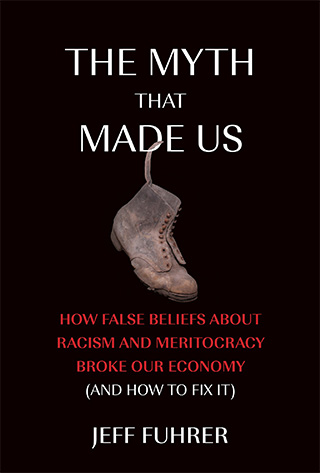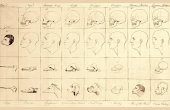The Myth of Meritocracy Runs Deep in American History

From America’s founding — and before — false narratives about post-racism and meritocracy have been at play in our national identity. By the early 19th century, there was a general expectation that white men should, and could successfully, strive for self-mastery and improvement: that a hard-working, right-living youth could become a prosperous self-made man. Implicit disapproval of the poor has an even longer history, rooted in debates over colonial poor laws. As a nation, we have absorbed and employed these narratives for generations.
In tracing the roots of these narratives, two caveats are in order. First, what the average person thought about individual achievement and opportunity at the beginning of the 19th century is difficult to say. What exists are the accounts of those who succeeded, those wealthy enough to have had political power and thus be included in the historical record. Second, this topic is much too broad to cover adequately here. Many have written about the nation’s evolving sense of itself in the wake of independence and during the years in which the republic solidified. I will borrow from their insights and heavily summarize the import of their work for this discussion of the origins of The Myth, as I call it in my book.

What did well-off Americans believe about opportunity and individual achievement when our nation was young? What narratives did they employ both to make sense of their newly forming country and to guide their decisions in the formative period before the Civil War? The principles of freedom and equality loomed large in the writings of the time, in part because they contrasted strongly with the constraints on freedom of choice that prevailed under Crown rule and in part because issues of liberty had been so intensely debated during the Revolutionary Era. As Harvard economist Benjamin Friedman notes, by the time observant foreign visitor Alexis de Tocqueville commented on American society in the 1830s, he could conclude that Americans’ devotion to the ideal of a free and equal society “created the belief that anyone could get ahead; and while not everyone would succeed in doing so, this belief fostered an attitude that everyone should at least try.”
And the country was indeed more “open” then than now — at least for non-enslaved and non-Indigenous people. Following the Revolution, as territory west of the Appalachians opened for settlement, there was simply more land available, even though much of it was already occupied by Indigenous people. Available lots could be purchased through the Land Office, an 1800 creation of Congress that was designed to administer land sales. But, as Joyce Appleby notes in her book “Inheriting the Revolution,” following the War of 1812 Congress also granted veterans of the war 160-acre parcels located between the Illinois and Mississippi rivers.
Independence from Britain also released some Americans from hierarchical limits on work choices. An expanding world of commerce and manufacturing created new choices and opportunities for some. The opening of trade to India and other markets similarly provided new opportunity for a few to amass wealth in markets that had been inaccessible under colonial rule. For some white men there was an almost giddy sense of opportunity to improve, to rise, to achieve wealth and standing. Tocqueville inferred that mid-19th-century America’s wealthy men were mostly self-made, observing, “In America, most of the rich men were formerly poor.”
American belief in self-determination was bolstered by a religious imperative. By the 1820s, the religious revival known as the Second Great Awakening rocked the nation. The awakened soul was urged to perfect himself and society, an imperative that emphasized individual striving. Young revivalist ministers not only reinvigorated “flagging religious affections,” writes Appleby, they simultaneously spread “lessons about personal strength” and urged “self-reliance the basis of liberty,” which “worked to undermine people’s dependence upon authorities.” Religion bolstered economic striving throughout the 19th century. Russell Conwell, a Baptist minister who preached the same sermon over 6,000 times, reaching millions of listeners in late 19th century America, proclaimed:
Never in the history of the world did a poor man without capital have such an opportunity to get rich quickly and honestly as he has now in our city. . . . I say that you ought to get rich, and it is your duty to get rich . . . to make money honestly is to preach the gospel.”
In many ways, our earlier national narrative echoed the rhetoric of the current one: Those whom we know about through remaining written record — white men — felt they had achieved much through their own hard work. This perception is somewhat understandable, as many had migrated to new lands to the West and cleared, cultivated, and maintained them through back-breaking labor.
Like the narrative of the current period, this narrative suffers from selective memory — limitations of the extant historical record — as well as a focus on exceptions rather than statistical norms and scant attention to the effects of success on people of color. The older narrative doesn’t recognize the people left behind during the great progress of the 19th century — the many failures that accompanied the few recorded successes. For example, the likelihood of business survival at the time was low: Businesses in many places had a one in three chance of survival after three years. The old narrative also ignores the Indigenous people who suffered for the sake of progress. Not only were Indigenous people displaced from the land they had occupied for centuries in order to make way for the westward migration of white men and their families, they were further dislocated or murdered by U.S. troops who were sent to support the settlers establishing themselves in this “new” land. And, in a rather glaring omission, nor does the story take account of the fate of the enslaved during this period.
Attitudes toward the poor followed an ancient narrative, which divided the destitute into the pitiful who deserved compassion and aid and the “vicious” poor, who deserved nothing but disdain.
Similarly, current debates about the appropriate role of government are presaged in the republic’s early history. Tocqueville reported that 1830s Americans believed “their chief business [was] to secure for themselves a government which will allow them to acquire the things they covet and which will not debar them from the peaceful enjoyment of those possessions which they have acquired.” Government served best when it stayed out of the way of the attainment of the emerging American Dream — except when it came to slaughtering the pesky Indigenous people who inconveniently stood in the way of the attainment of that dream.
Attitudes toward the poor followed an ancient narrative, which divided the destitute into the pitiful who deserved compassion and aid and the indolent or “vicious” poor, addicted to sloth and vice, who deserved nothing but disdain. This taxonomy of the poor is laid out in debates that date back centuries:
Distinguishing between the worthy and unworthy poor had been customary in Europe since the fourteenth century. The worthy poor were indigent through no fault of their own and deserved aid. The unworthy poor had contributed to their own decline and thus were not, properly speaking, poor at all but criminal and deserved nothing more than correction.
Indeed, even before the formation of the Republic, prominent citizens expressed views about the poor that might well have appeared in last week’s Washington Times. Benjamin Franklin came from humble beginnings in a large family (his father had 17 children with two wives), but this experience hardly left him sympathetic. In 1767, he wrote:
I am for doing good to the poor, but I differ in opinion of the means. I think the best way of doing good to the poor, is not making them easy in poverty, but leading or driving them out of it. In my youth I travelled much, and I observed in different countries, that the more public provisions were made for the poor, the less they provided for themselves, and of course became poorer. And, on the contrary, the less was done for them, the more they did for themselves, and became richer.
Numerous examinations of early poor relief in the colonies find the same expressions of English tradition, and the same distinction between the deserving and undeserving. Nian-Sheng Huang’s examination of poor relief in 18th-century colonial Boston noted that “The town could not ignore provincial laws mandating that it care for the indigent and dispose of the idle or able-bodied poor, a traditional Elizabethan distinction.”
Eric Nellis and Anne Cecere’s introduction to their collection of the records of the Boston Overseers of the Poor similarly suggests:
As to the question of who was therefore responsible for the relief of the poor, the answer then was the poor themselves if they were able-bodied and the community or state if they were not.
In devising what he considered a just system of poverty relief for Massachusetts in 1821, Josiah Quincy authored a report that distinguished between the two classes of the poor: the “impotent” poor, “who are wholly incapable of work, through old age, infancy, sickness or corporeal debility,” and the “able” poor, who are “capable of work, of some nature, or other; but differing in the degree of their capacity.” Were all of the poor of the first kind, Quincy testified, there “would be little difficulty, either as to the principle, or as to the mode of extending relief.” These are, of course, the “deserving” poor. Quincy believed that many of the poor were in fact able, at least until they got on the dole: He noted the tendency of the 1818 English Poor Laws to “encourage the worthless and audacious . . . to lessen their honest exertions; to deprave their morals . . . to multiply their number, offering a premium for indolence.” Once they have received aid, the able poor “begin to consider it as a right; next they calculate upon it as an income.” Nowhere does Quincy imagine that some who are able to work might also deserve assistance, perhaps because circumstances beyond their control have left them unemployed, or underemployed, or employed in miserable conditions.
Thus, The Myth runs deep in our history: Men can and should rise to success in this land of opportunity, and those who do not are to blame for their failure. To a degree, this position is understandable. There was a time when — the exceptions noted above notwithstanding — the country was more open, provided more opportunity, and, for those whose records remain, was perhaps more likely to reward individual effort with material success. The republic’s founding principles of liberty and equality, along with the Great Awakening’s emphasis on individual achievement, harmonized well with the themes of opportunity, meritocracy, and self-determination.
Americans’ deep mistrust of the poor similarly has deep historical precedent, as does the tendency to whitewash history of its enduring themes of subjugating and eliminating other races and ethnicities. We carry these foundations with us today in The Myth of equal opportunity, self-determination, and post-racism. As aspirations, they could serve us well — although one can go too far in lauding the ideal of individual accomplishment. As descriptions of reality, or determinants of social policy, they are hopelessly misguided.
Common Ground
Both adherents of The Myth and those who recognize its falsehoods are likely aware to some extent of the struggles faced by low-income people and minorities. Where adherents and opponents differ is in their assessments of how poor people got that way and what to do about it. Likely points of agreement include:
- Hard work matters. There are very few who believe that economic success should be attained without individual effort. Whether people agree that hard work is sufficient for success is another issue.
- Capitalism on the whole can be a great economic system. The alternative — state control of all economic activity — has been shown to work poorly in many countries. Across both parties, most agree on this point. (A 2020 Gallup poll found that 45 percent of Americans would vote for a qualified socialist for president.)
- Related to the previous point, there are obvious advantages to allowing markets and market signals to allocate scarce resources in many, perhaps most, circumstances.
- There is too much inequality in the United States. A 2019 Pew survey found that 61 percent of respondents felt there is “too much economic inequality in the country these days.”
It is a good sign that the nation largely agrees on that last point. On what to do about it, not so much.
Finally, adherents to both narratives almost surely aspire to live in an economy in which there is equal opportunity to succeed, given effort. They differ on how close we are to achieving that aspiration and on whether or how we can improve.
Frankly, I find The Myth, which to a large extent accepts the current economic setup as it exists, dismaying. To my eye, it simply cannot be right that a country as affluent and wealthy as ours leaves so many hopelessly behind, without any real opportunity to succeed. A narrative that accepts that, to any degree, seems cold-hearted, mean-spirited. Our country should be at the very least embarrassed by the results, which I detail below.
Seeing The Myth for what it is makes clear that the wealthy and powerful have constructed virtually all of this. But our fate, in the aggregate, is not out of our control, even though for many individuals it largely is. It will be no small task to right this ship, and to refit it to more closely resemble the vessel of opportunity we aspire to. But as other countries have shown, and as some of our history suggests, we are capable of it. We abolished slavery. We offered the Marshall Plan to rebuild countries, including our former enemies, in the wake of World War II. We provided tremendous aid to Indonesia after the 2004 tsunami that killed 125,000 within one-half hour and devastated that country and several others. We need now to turn to our own citizens with that same sense of generosity, urgency, and humanity.
Jeff Fuhrer is a Non-Resident Fellow at the Brookings Institution and a Foundation Fellow at the Eastern Bank Foundation. He was previously Executive Vice President and Director of Research at the Federal Reserve Bank of Boston, where he was also responsible for the bank’s diversity and inclusion functions. He is the author of “The Myth That Made Us,” from which this article is excerpted.



